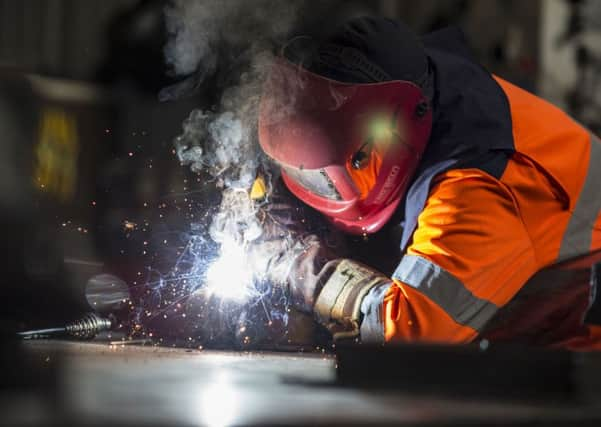Profits rise at steel giant after year of change


Pre-tax profit rose from £1m to £4.3m in the year to September 30, 2016, as steel prices rose in the second half of the year, according to accounts filed at Companies House.
The Bradford firm, which supplies steel to major steel fabricators to use in industrial warehouses, infrastructure projects and retail developments across the UK, has seen its energy division hit by the ongoing decline in the oil and gas sector.
Advertisement
Hide AdAdvertisement
Hide AdThe challenge led to non-UK sales falling to £24.2m from £33.2m and the closure of the firm’s forge in Newcastle and machine shop in Ayr to stem the flow of losses.
The firm faced restructuring costs of £1.5m, down from £2.4m the previous year, relating to redundancy costs, with £1m being incurred as a result of the forge closure.
Barrett reduced its headcount by 100 to 1,077 during the year. The firm employs about 200 staff at its head office in Bradford.
Turnover at the firm dropped by 10 per cent in 2016 to £255.7m despite volume increasing by three per cent, due the fall in steel prices in the first half.
Advertisement
Hide AdAdvertisement
Hide AdIn November, the firm’s managing director James Barrett became chairman following the retirement of Roy Butcher, who retired after 23 years in the role.
Asked whether the firm’s restructure was now complete, Mr Barrett told The Yorkshire Post that the management had “tackled 80 per cent of the issue” with the measures taken last year.
He added that the core stockholding side of the business was performing “very well”.
“We are significantly ahead of where we were this time last year,” he said.
Advertisement
Hide AdAdvertisement
Hide Ad“The year we are in at the moment should be an improvement on the year completed.”
Net debt reduced by almost 40 per cent to £38.9m from £62.9m in 2015, largely due to working capital improvements.
Mr Barrett said the firm had seen no impact from the Brexit vote. “There was a concern after the vote that construction would stop but it has come back very strongly,” he said. “The whole sector is pretty buoyant at the moment.”
Rising steel prices, due to the exchange rate and cost of raw materials, remains the main challenge for the firm, which is passing the costs on to its customers.
Advertisement
Hide AdAdvertisement
Hide Ad“Getting price increases into the market is a challenge because there is some resistance to that,” he said.
The British steel industry has been pummelled by the exchange rate, high electricity prices and increased competition from China in recent years.
British steelmakers have accused China of “dumping” cheap steel on the market, which they say is subsidised by the Chinese government.
Over the past couple of years oil prices have plummeted off the back of oversupply. The US has seen a boom in shale gas production while Opec countries such as Saudi Arabia have not scaled back production leading to a negative impact on the sector.
Advertisement
Hide AdAdvertisement
Hide AdMr Barrett said the oil and gas market remained uncertain and he did not expect any significant improvements in the market until 2018.
The British steel industry also hit the headlines last year when Tata Steel announced it was putting its UK business up for sale amid losses of more than £1m a day.
But Mr Barrett remains upbeat about the future of the industry and his business. He aims to boost Barrett’s turnover to £300m, by 2020,
“We buy half of our steel from UK manufacturers and half is imported,” he said. “It’s important to have a UK steel business but as long as it doesn’t come to an abrupt end we could remodel the business on imported steel.”
He added: “The year has started well for us and we expect demand to remain throughout 2017.
“The government has now realised that steel is an important sector for the UK economy.”